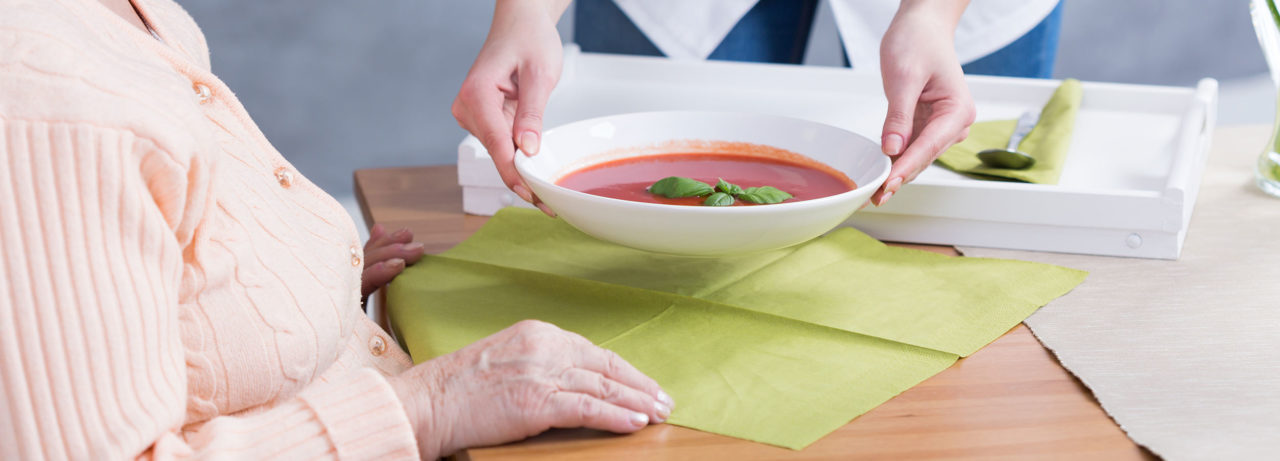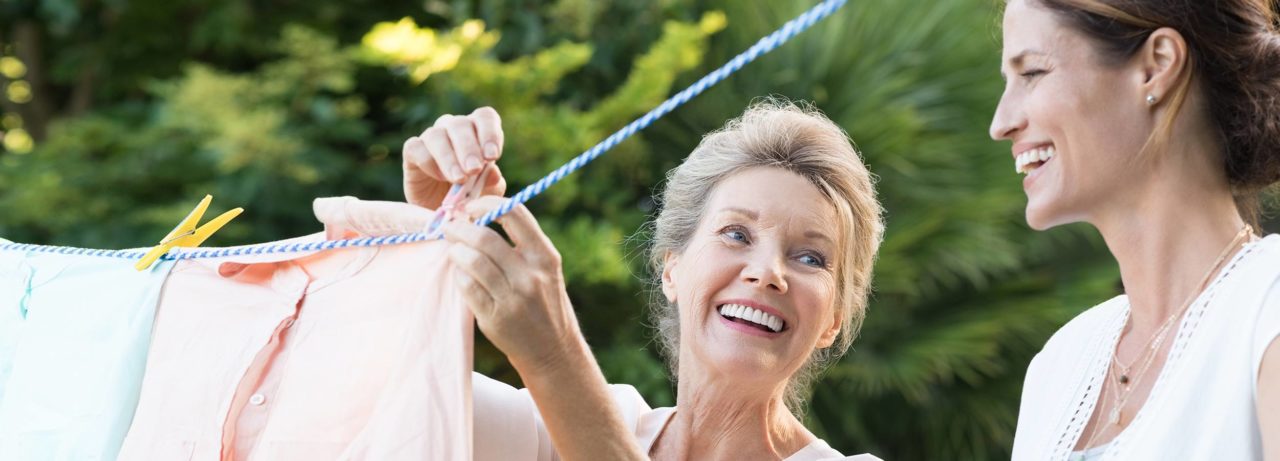Share
In the early stages of Alzheimer’s, seniors may begin to lose interest in activities they once enjoyed and become less engaged or productive as a result. The good news is you can stimulate your loved one with the following simple activities.
Follow a Plan
Routines create predictable patterns, which are beneficial for people with memory loss. When your loved one knows what to expect each day, he or she is less likely to feel overwhelmed.
Structure each day with regular times for meals, personal care, and sleep. Plan in advance for additional activities, such as doctor’s appointments or trips to the grocery store. When deviating from the normal daily plan, share an itinerary with your loved one so that he or she is prepared and can transition from one task to another without anxiety.
Encourage Participation in Housework
A loved one in the early stages of Alzheimer’s may not be able to handle complex jobs, but he or she can still help take care of the basics around the house. Provide him or her with simple chores to do throughout the week, such as:
- Sorting and folding towels
- Sweeping floors
- Wiping down countertops or walls
- Organizing small spaces
Whether or not the results are perfect, your loved one will benefit from the stimulation he or she gets when helping out.
Support Physical Health
Bodily health influences brain health, so if your loved one eats well and stays active, he or she should be able to remain productive for longer. Remove junk food from the diet, focusing instead on whole foods, especially colorful vegetables, and fruits.
Encourage whatever physical activity your loved one can handle, accompanying him or her on walks or to age-appropriate exercise classes whenever possible.
Inspire Creativity
Creative activities, such as drawing, painting, knitting, and cooking, stimulate the mind and make your loved one feel accomplished. A simple approach may be required, such as knitting projects without embellishments or cooking meals with a limited number of ingredients, but the point is to allow your loved one to engage in something from which he or she derives pleasure. These activities also promote a degree of independence at a time when your loved one may feel as though he or she is losing control.
Staying active helps people with dementia maintain a degree of independence and can reduce the anxiety often associated with Alzheimer’s. Make productive activities part of your loved one’s daily routine to keep him or her focused and satisfied.
If you need extra help caring for your loved one, our companion caregiving services may be the right fit for you! Our companion caregivers assist with shopping, escorting to and from appointments, taking part in recreational activities and more! Learn more about our companion services today.
In the world of healthcare and home care, the roles of caregivers and nurses are often confused, yet they are distinct in their responsibilities, training, and the nature of their work. This article explores the five main differences between caregivers and nurses, shedding light on their unique contributions to patient care. Educational and Training Requirements […]
Falls among the elderly can lead to significant health issues, including injuries and reduced mobility. Home care aides and Certified Nursing Assistants (CNAs) play a critical role in preventing falls and ensuring the safety of elder patients. Here are five key ways they can help: Assessment and Personalized Care Planning: Home care professionals are trained […]
Selecting a live-in caregiver is a crucial decision for families and individuals who require ongoing, in-home care. This blog will provide insights and practical advice on choosing the right live-in caregiver, ensuring a good match, and how Caring Home Care can help facilitate this process. Understanding the Role of a Live-In Caregiver Live-in caregivers provide […]
Recovering from surgery can be a challenging process, especially in the comfort of one’s home. In-home caregivers play a pivotal role in this phase, providing essential support and care. This blog will dig into the importance of in-home caregivers in post-operative recovery, highlighting the specific services offered by Caring Home Care that cater to these […]
Need A Caregiver? Fill Out Form Below
With our competitive rates, we make receiving in-home care affordable regardless of whether you’re using your insurance or paying out of pocket.









